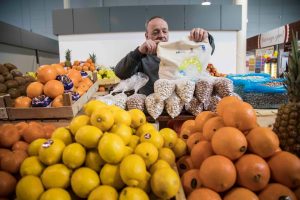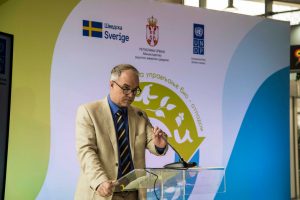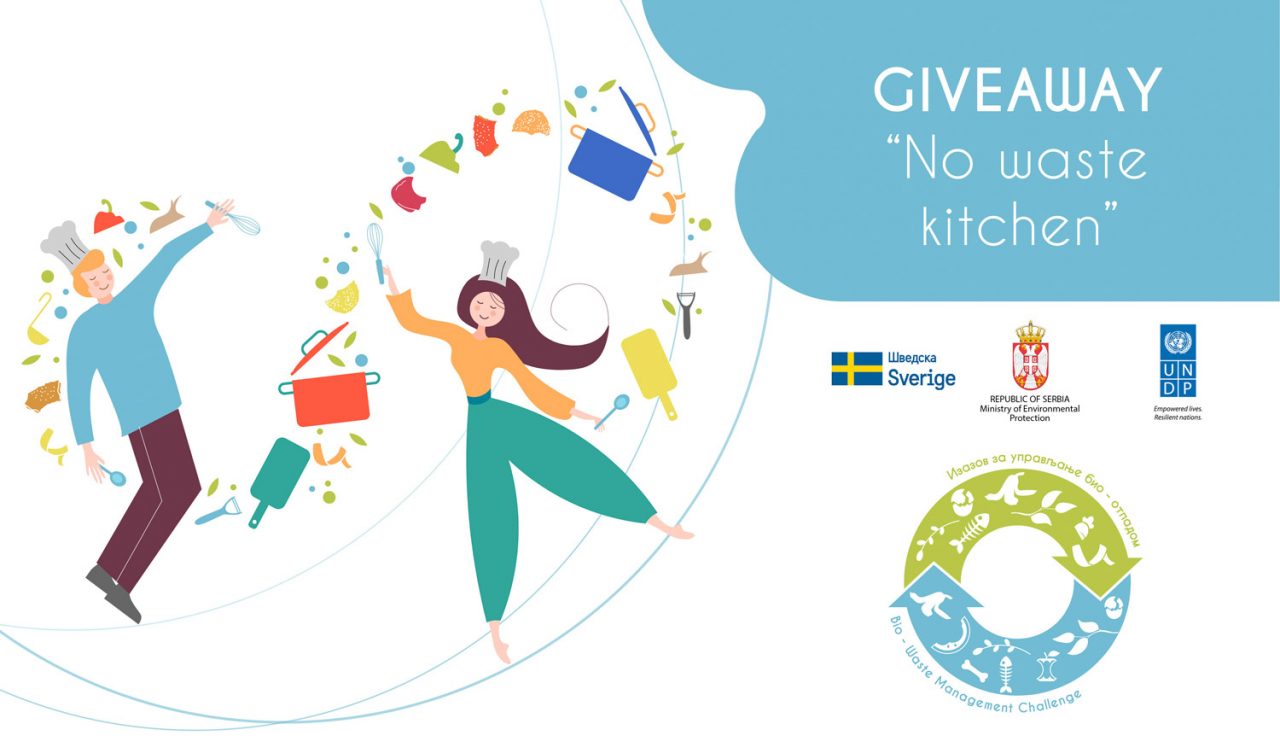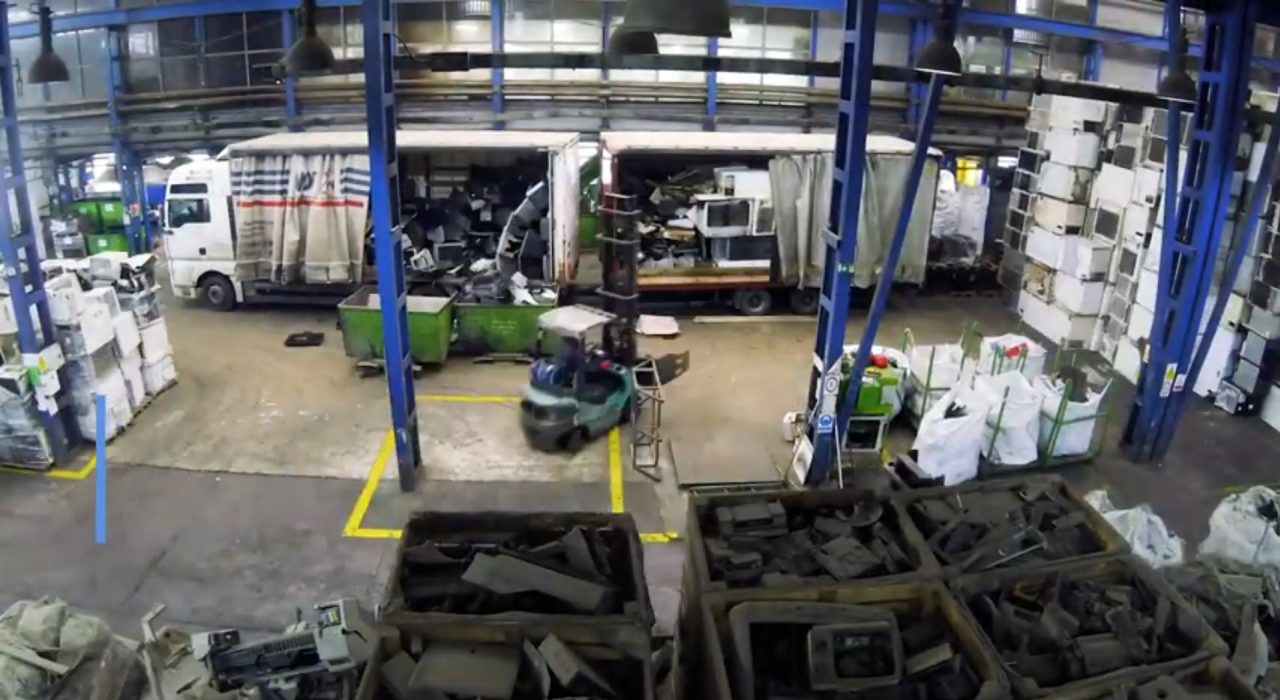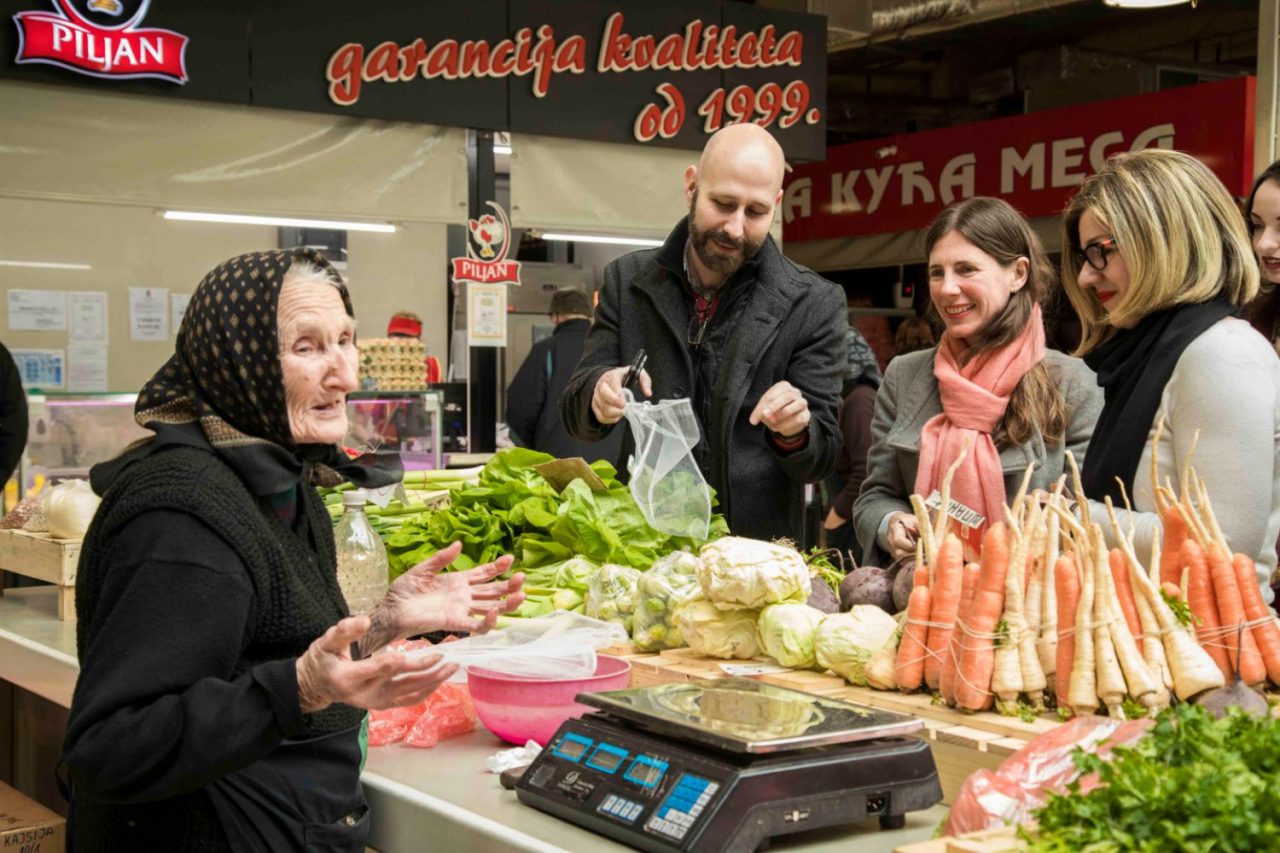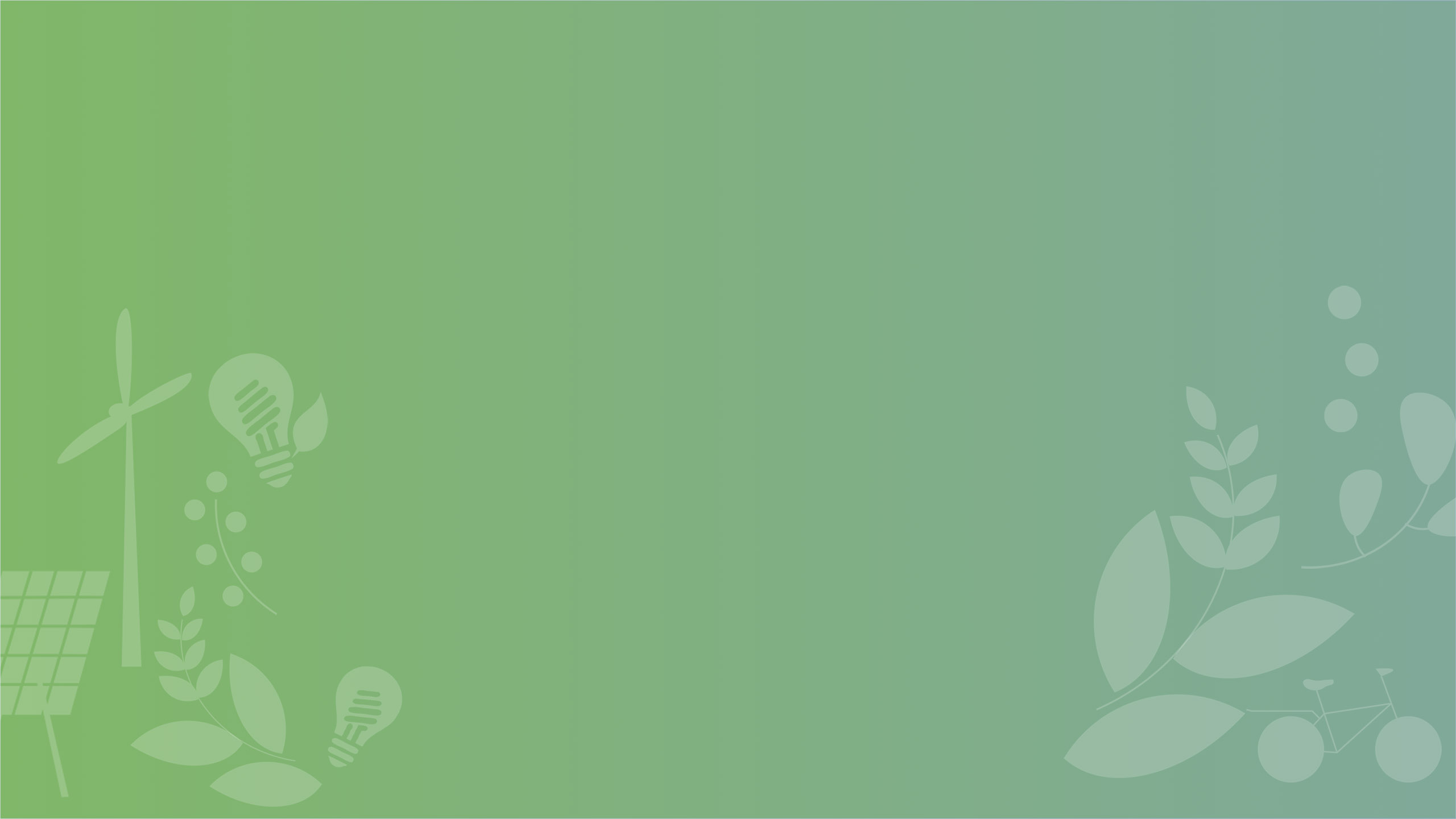-
Aug 27 2020 PUC „Toplana-Šabac“ set up a mini solar power plant
Public Utility Company (PUC) „Toplana-Šabac“ is the first PUC in Serbia to start producing electricity from renewable energy sources. On August 13th, a small solar photovoltaic power plant of 3 kilowatts was installed on the roof of the administrative building of that company through the Project of the Energy Cooperative “Sunny Roofs Šabac”.
The first energy cooperative in Serbia „Solar Roofs“ was founded by the citizens in Šabac on November 2019, with the support of PUC “Toplana-Šabac”, Green Energy Cooperative (ZEZ) from Zagreb and United Nations Development Programme (UNDP) in Serbia through the project “Climate Smart Urban Development Challenge (CSUD)”, which is carried out by the Ministry of Environmental Protection and funded by the Global Environment Facility (GEF).
Energy cooperatives are a new type of organization and activism, which should lead to an increase in the use of renewable sources. Similar cooperatives already exist in the countries of the European Union and the first cooperative in Serbia is open to all who are interested, regardless of the place they live.
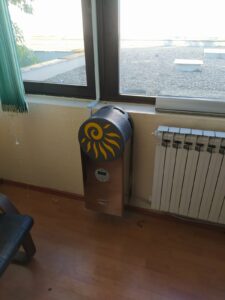 The initiative came from a desire to show that it is possible to bring together people of similar interests around a good idea. The main goal is to implement a project that offers an alternative solution for municipal energy supply. By using renewable energy sources, in this case, solar energy, it is possible to reduce the use of fossil fuels, heating and electricity costs, but also significantly contribute to the reduction of greenhouse gas emissions.
The initiative came from a desire to show that it is possible to bring together people of similar interests around a good idea. The main goal is to implement a project that offers an alternative solution for municipal energy supply. By using renewable energy sources, in this case, solar energy, it is possible to reduce the use of fossil fuels, heating and electricity costs, but also significantly contribute to the reduction of greenhouse gas emissions.The cooperative will soon launch an investment crowdfunding campaign for the first project, the installation of an additional 17-kilowatt solar photovoltaic power plant. The energy produced from photovoltaic power plants, installed on the roofs of private homes and public buildings, generates revenue to members of cooperative from the sale of energy to entities engaged in electricity trading or savings if used for their own needs.
-
Apr 16 2020 “No Waste Kitchen” Challenge
Ahead of the coming Easter holidays, during which people traditionally prepare larger quantities of food, as well as due to the circumstances caused by the Covide-19 pandemic when we are cooking at home more than usual, the Sweden and the United Nations Development Programme (UNDP), in partnership with the Ministry of Environmental Protection, are initiating the “No Waste Kitchen” Giveaway, to promote the reduction of food waste in households.
The Giveaway is open to all users of social networks Facebook and Instagram, who post a video or a photograph of a meal made of excess food/food surplus, meal prepared with no waste generated, or showing how they and their household members reduce food waste in their home, using the hashtag #NoWasteKitchen.
The “No Waste Kitchen” Giveaway will last from 16 April to 8 May 2020, and each week three most creative social media posts will be awarded. The winners will be selected by the jury consisting of the representative of the Swedish Embassy to Serbia, a representative of the UNDP, and Jelena Malenović, the author of the blog Spice and Sunshine. Detailed rules and regulations are available here > Social Media Giveaway Rules
One-third of the food produced globally is wasted, while the number of hungry people worldwide exceeds 800 million. Food that ends up in landfills decomposes and emits greenhouse gasses, methane and carbon dioxide, having a negative impact on climate change.
By reducing food waste, we are helping protect the environment and save money. The easiest way to do this is by smarter planning of food purchases, freezing of edible meal remains for later use, and cooking by using products that we already have in the household.
“No Waste Kitchen” is part of the project “Bio-Waste Management Challenge” through which Sweden, in cooperation with UNDP Serbia, is supporting the Ministry of Environmental Protection to come up with innovative solutions to improve waste management, in compliance with EU standards.
-
Mar 26 2020 Innovation Call “Action for Climate Positive Change” in Western Balkans
The Fund for Innovation and Technology Development of Republic of North Macedonia, with support of United Nations Development Programme (UNDP), has announced Innovation Call on climate resilience “O2 Challenge II – ACTION FOR CLIMATE POSITIVE CHANGE“.
The call is intended for micro, small and medium-sized companies seeking to develop an innovative product, service or process, independently or in cooperation with an institution carrying out a higher education or research activity, or another company and/or association from the country or the region of the Western Balkans (WB6), including Serbia.
Application deadline is April 15th 2020, 23:59 pm.
You can find more info here http://www.fitr.mk/%D0%BE2eng/#toggle-id-2
-
Mar 13 2020 New product from old refrigerators – recycling for waste reduction and environmental protection
There are around 20 million electronic and electric devices in the Serbian market. With the growth of demand and the price drop, the older, obsolete devices are being disposed of. If they end up in a landfill, electronic and electric devices become hazardous waste. They release dangerous substances such as mercury, lead and cadmium in water and soil, whereas they emit the greenhouse gases (GHG) into the air, having an impact on climate change. A discarded refrigerator, for instance, emits the same amount of CO2 into the air as an airplane that has travelled almost halfway across the globe (10,000 kilometres).
However, electronic and electric devices can be recycled—in such a way that it results in brand new, usable and environment-friendly products. This is exactly the business case of Jugo-Impex E.E.R, a company from Niš. One phone call is enough so that electronic or electric waste doesn’t go to the landfill, but to their recycling plant instead. Their waste-collecting team will come to your home address and pick up the waste for free. They have managed to collect 4,000 tons out of 10,000 tons of refrigerators that are being disposed of in Serbia every year. When recycled properly, all the parts of one’s fridge can be reusable.
“One recycled fridge gives us 20% of plastic, 63% of iron, 6% of coloured metals, 10% of polyurethane powder obtained by processing polyurethane foam, and around 1% of Freon and oil,” explains Nenad Todorović, maintenance engineer for plant and equipment at Jugo-Impex.
“Polyurethane foam is used as insulation in cooling devices, and it contains Freon. F-gases are powerful greenhouse gases with a high global warming potential and strong impact on climate change. A proper recycling procedure separates Freon from the polyurethane foam, and we convert hazardous waste into a completely safe polyurethane powder which we use to make a new product with high absorption powers. This is the first product of this kind made 100% out of recycled materials in the region, and it is used to absorb oil spills and stains,” says Goran Zdravković, maintenance engineer for plant and equipment at Jugo-Impex.
Proper recycling of refrigerators prevents GHG emissions, while the production of absorbers gives us a useful product that is safe for the environment.
In Jugo-Impex, they believe that in the next two years the recycling of refrigerators will contribute to removing around 10 tons of Freon, which will result in a decrease of CO2 emissions by 16.5 tons per year.
Waste recycling contributes to environmental protection because this process allows for proper collection, transport, treatment and disposal of hazardous waste. From the business point of view, the materials obtained through recycling are significantly cheaper than the same materials obtained through classic industrial processes, whereas the circular production models can also create new jobs.
Increasing the circularity of consumption and production is one of the global Sustainable Development Goals (SDG 12), and it also contributes to Serbia’s progress toward the EU accession (Chapter 27, on environment and climate change).
The production of absorbers from fridge polyurethane foam was one of out of five best and most innovative climate smart solutions which received co-financing for implementation within the project Climate Smart Urban Development Challenge. The project is implemented by United Nations Development Program (UNDP) in partnership with the Ministry of Environmental Protection, and with the financial support of the Global Environment Fund (GEF).
By clicking on this video, you can learn more about the process.
-
Mar 10 2020 Bio-waste Management Challenge Call officially open for applications
Today we launched the “Bio-Waste Management Challenge Call” at the Palilula Market, in partnership with the Ministry of Environmental Protection, and with the support of the Swedish International Development Agency (SIDA).
The purpose of this Challenge Call for proposals is to identify and support the implementation of innovative solutions for management of biodegradable waste, particularly food waste and kitchen waste, as well as green waste from parks and gardens. Such solutions will contribute to reducing emissions of greenhouse gasses (GHG) and increase the use of renewable energy sources.
The Challenge Call was officially opened by the Ambassador of the Kingdom of Sweden to the Republic of Serbia, H.E: Jan Lundin, the assistant minister of environmental protection Biljana Filipović-Đušić, and UNDP Resident Representative to Serbia Francine Pickup.
The Ambassador of the Kingdom of Sweden to the Republic of Serbia, H.E: Jan Lundin states that initiatives like this one, which encourage innovative solutions, are important for the environment, but equally for the Serbian economy, as they will create new jobs.
„Within the support that Sweden is providing to Serbia in order to accelerate its accession to the European Union, we are assisting Serbia to improve its system of waste management. Across the European Union and Sweden, there are many examples of best practice and successful business solutions to manage bio-waste. The project will allow us to exchange ideas, learn from each other“, stated Lundin.
The assistant minister of environmental protection Biljana Filipović-Đušić spoke about the activities that Serbia has undertaken to address the bio-waste management issues.
„We are developing a new Waste Management Strategy for the period 2020 to 2025, which is aligned with the five new EU Circular Economy Directives. It is expected to be adopted this year. Re-use of biodegradable waste is in line with the process of implementing circular economy in Serbia, following the best practice in EU countries and the EU acquis. This project will facilitate the establishment of infrastructure for bio-waste management, primarily through its collection and separation from other waste flows. “
She also mentioned that the EU countries have set the goal for 2035, and Serbia should aspire to it also – to recycle 65 per cent of waste, and to reduce the amount of waste being landfilled to less than 10 per cent.
„With the support of the Kingdom of Sweden and in cooperation with the Ministry of Environmental Protection, UNDP is assisting Serbia, through improved management of biodegradable waste, to reduce greenhouse gasses emissions and pollution, create new jobs and save resources. I hope that thanks to this Challenge Call we will collect many great proposals and that jointly we will contribute to collect and treat greater volumes of this type of waste, for the benefit of the economy, the environment and the citizens of Serbia,“ said Francine Pickup, UNDP Resident Representative to Serbia.
Better management of biodegradable waste contributes to achieving a number of the UN Sustainable Development Goals: ending poverty and hunger, ensuring good health, providing affordable and clean energy, sustainable consumption and production patterns, building sustainable cities and communities and preventing climate change, added Pickup.
According to the Food and Agriculture Organisation (FAO) data, one third of all food produced globally is wasted, and this quantity would be sufficient to feed almost a billion hungry people globally.
According to available data, 900,000 tons of bio-degradable waste is collected in Serbia from food industry waste, restaurants, supermarkets and individual households, along with the green waste from gardens and parks. About 70 per cent of that waste ends up in non-sanitary landfills, causing damage to the environment and increasing GHG emissions. Only 1 per cent of biodegradable waste is being collected and processed, and the loss of wasted resources costs Serbia approximately 50 million euros annually.
Bio-Waste Management Challenge Call is open for all applicants until 22 April 2020. Innovative ideas for more efficient management of food waste and green communal waste can be submitted by local governments, public enterprises, scientific research institutions and civil society organisations. The selected teams will work on their solutions with professional mentors, and the best five will receive co-financing in order to implement their ideas in practice. They will also participate in study tours to Sweden, where they will hear first-hand about the best European examples.
The project „Climate Smart Bio-Waste Management Challenge” and the public call for innovative solutions is initiated by the UNDP, in cooperation with the Ministry of Environmental Protection and financial support of the SIDA. For more information visit: http://74zy3a1.undp.org.rs/en/application/


